Fiction has many purposes. Entertainment, education, enlightenment, and learning empathy are the big four I can think of right now. Good fiction should do all these things, sometimes without your notice. As you learn and grow, the lessons may get more subtle. Maybe the book is just brain candy,1 meant solely to entertain, and author didn’t mean to do anything Read more
marketing
Thoughts on Facebook
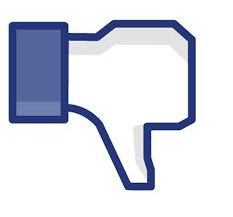 I have been increasingly frustrated with the way Facebook has been hiding what I post from people who have requested to see what I say. For those of you who don’t know (maybe don’t even care), this is a good explanation: Getting Facebook Slapped: Understanding Facebook’s Big Lie
I have been increasingly frustrated with the way Facebook has been hiding what I post from people who have requested to see what I say. For those of you who don’t know (maybe don’t even care), this is a good explanation: Getting Facebook Slapped: Understanding Facebook’s Big Lie
Pertinent points: Read more
How to destroy a brand in one easy (lazy) step
So most of us DIYers out here are trying to brand ourselves. We spend our time on Twitter and Facebook and message boards and whatnot trying to build an audience and a fanbase.
Then the midlist authors come along and digitize their backlists, and everybody’s happy because they already have a brand and they’re simply supplying a product that people want. Yay.
And then there are the midlist and higher-up authors who self-publish new stuff. That’s kind of an interesting experiment. I like watching it all play out even though, well, their brand trumps my brand and I have to work harder at establishing my brand. Read more
NetGalley
For whatever reason, NetGalley has decided to start putting tighter restrictions implemented publishers’ tightening of restrictions on who gets free eARCs (electronic Advanced Reader Copies).
So what.
Here’s the thing: NetGalley charges what is, to me, a micropress, an astronomical amount of money to give away books. That’s right: I would be paying to give my product to people in exchange for … very little in the way of a quantifiable return.
NetGalley is not in business to lose money. It’s in business to make money by providing a publishers’ colony. However publishers decide to define their ROI (return on investment) is how NetGalley’s going to be bringing in the money.
Follow the money.
When all other explanations fail, just follow the money.
The Proviso’s new back cover copy
The original one stunk. I know it. You know it. You probably don’t know that I know. It’s a wonder anybody bought it at all. It’s taken me two years to figure out another one that accurately represented the book in 250 words or fewer (actually, 232). With tons of help from my chat buddies who’d read the book, I finally came up with what I think is an accurate and succinct blurb:
Knox Hilliard’s uncle killed his father to marry his mother and gain control of the family’s Fortune 100 company. Knox is set to inherit it on his 40th birthday, provided he has a wife and an heir.
Then, after his bride is murdered on their wedding day, Knox refuses to fulfill the proviso at all. When a brilliant law student catches his attention, he knows he must wait until after his 40th birthday to pursue her—but he may not be able to resist her that long.
Sebastian Taight, eccentric financier, steps between Knox and his uncle by initiating a hostile takeover. When Sebastian is appointed trustee of a company in receivership, he falls hard for its beautiful CEO. She has secrets that involve his uncle, but his secret could destroy any chance he has with her.
Giselle Cox exposed the affair that set her uncle’s plot in motion—twenty years ago. He’s burned Giselle’s bookstore and had her shot because it is she who holds his life in her hands. Then she runs into a much bigger problem: A man who takes her breath away, who can match and dominate her, whose soul is as scarred as his body.
Knox, Sebastian, and Giselle: Three cousins at war with an uncle who will stop at nothing to keep Knox’s inheritance. Never do they expect to find allies—and love—on the battlefield.
I feel SOOO much better now.
You can buy it at the Kindle store, All Romance eBooks, and (preferably) B10 Mediaworx. Crossing fingers now that’ll give everybody some idea what the book is really about.
Selling shovels
You will notice I haven’t been posting much at all, much less my thoughts on ebooks and publishing. Wanna know why? I’m too busy with my burgeoning business to put any thought into a) what’s wrong with publishing (because why do I care?); b) how to go about formatting ebooks (because that changes week to week); and c) wondering if I’m ever going to get my historical swashbuckler researched and written (because I’m a writer, dammit!).
In case anybody cares, these are my current random thoughts, none of which rate the time to explore in a full-on blog post (plus, I’ve said it all before):
1) Writers: You’re screwed unless you put out your own stuff and you can market it. The old days are gone. “Getting” published is fine if that’s what you need to validate your soul. If you want better odds on getting to readers and making a little money, do it yourself. But dammit, do it right!
2) Writers: Remember that the people who made money in the gold rush didn’t make it panning for gold, chasing a vein that didn’t exist. The people selling the shovels made all the money. Learn a new skill and sell some shovels. You aren’t going to make a livable income writing for da man. Just don’t make any plans to leave your day job.
3) Book designers: Stop trying to format ebooks on a print paradigm. Ebooks are not print books. They don’t serve the same function. It’s like trying to apply a print paradigm to audiobooks. Stop it. Learn how to format serviceable, good-looking ebooks and forget about Teh Fancy.
4) Editors: Go freelance. Market your name. Make the authors who hire you put your name in the book so you can establish your brand. The curation of books in the future will depend on the editor, not the author, not the publishing house.
5) Indexers: You have a bright and shiny new field to explore. Learn how to index digitally. It’s called anchor tags.
6) Publishers: Get your metadata in gear. Seriously.
7) Publishers: The first publisher to chapter-and-verse its digital textbooks/reference/nonfiction will win the prize. What do I mean? I’ll tell you. Pick up a Bible. Any Bible, any translation, any size, any publisher. Go to John 3:16. That’s what I mean. Develop a system. Patent/trademark it then license it. Make it the standard of any good digital nonfiction book, the way good indexing is. Indexers, see #5.
That is all. I have a mountain of work to get done before I leave for NY next week.
Doc McGhee, literary agent
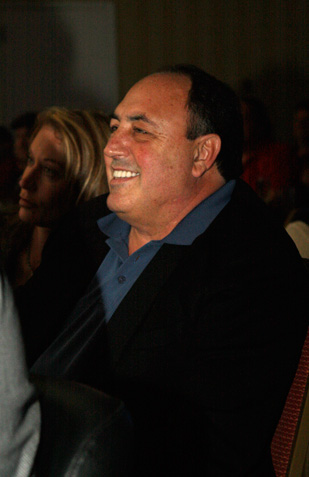 Hang with me for a series of seemingly unrelated factoids.
Hang with me for a series of seemingly unrelated factoids.
- Y’all know who Doc McGhee is, right? He was Mötley Crüe’s manager way back in the day and pretty much made them rich and famous.
- In early November, Amazon “suck[ed] up to literary agents” in a bid to kill its monsterly image. Really? They need literary agents to kill its monsterly image? Who’d’a thunk it?
- Random House, Simon & Schuster, and Hachette all announced they would be holding off releasing ebooks of new (hardcover) titles by six months. The brilliance never ends.
- Stephen Covey just told Simon & Schuster to fuck off. Well. I’m pretty sure that’s not exactly what he said.
- There is one thing an unknown or midlist self-published author can’t get that s/he needs most.
- There is only one thing a bestselling name-brand author has but doesn’t need at all.
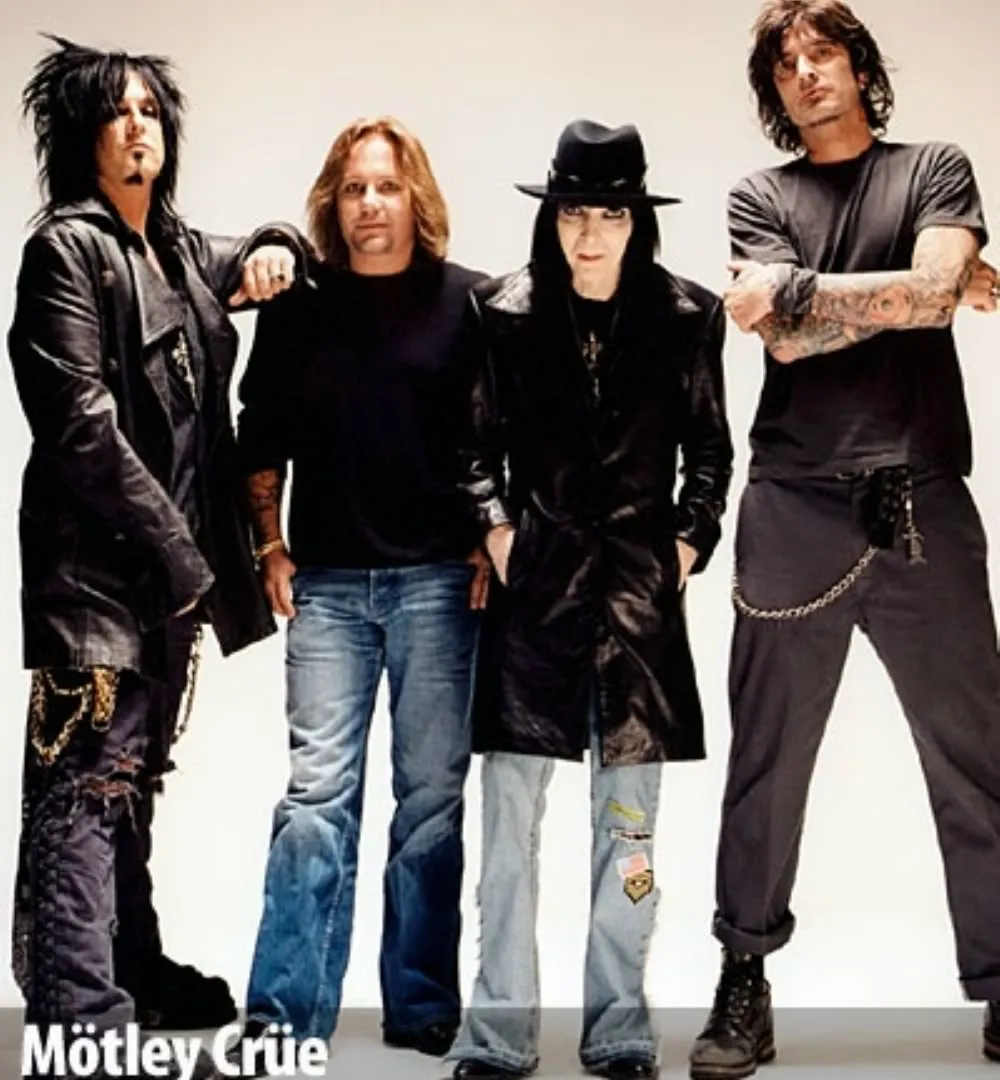
I’m not going to explain any of this stuff. The graphic should make it, well, graphically obvious. Take the above seemingly unrelated items, throw it in with this, and see what you come up with. Assume the writer has not himself arranged for the actual production of his manuscript into print and electronic:
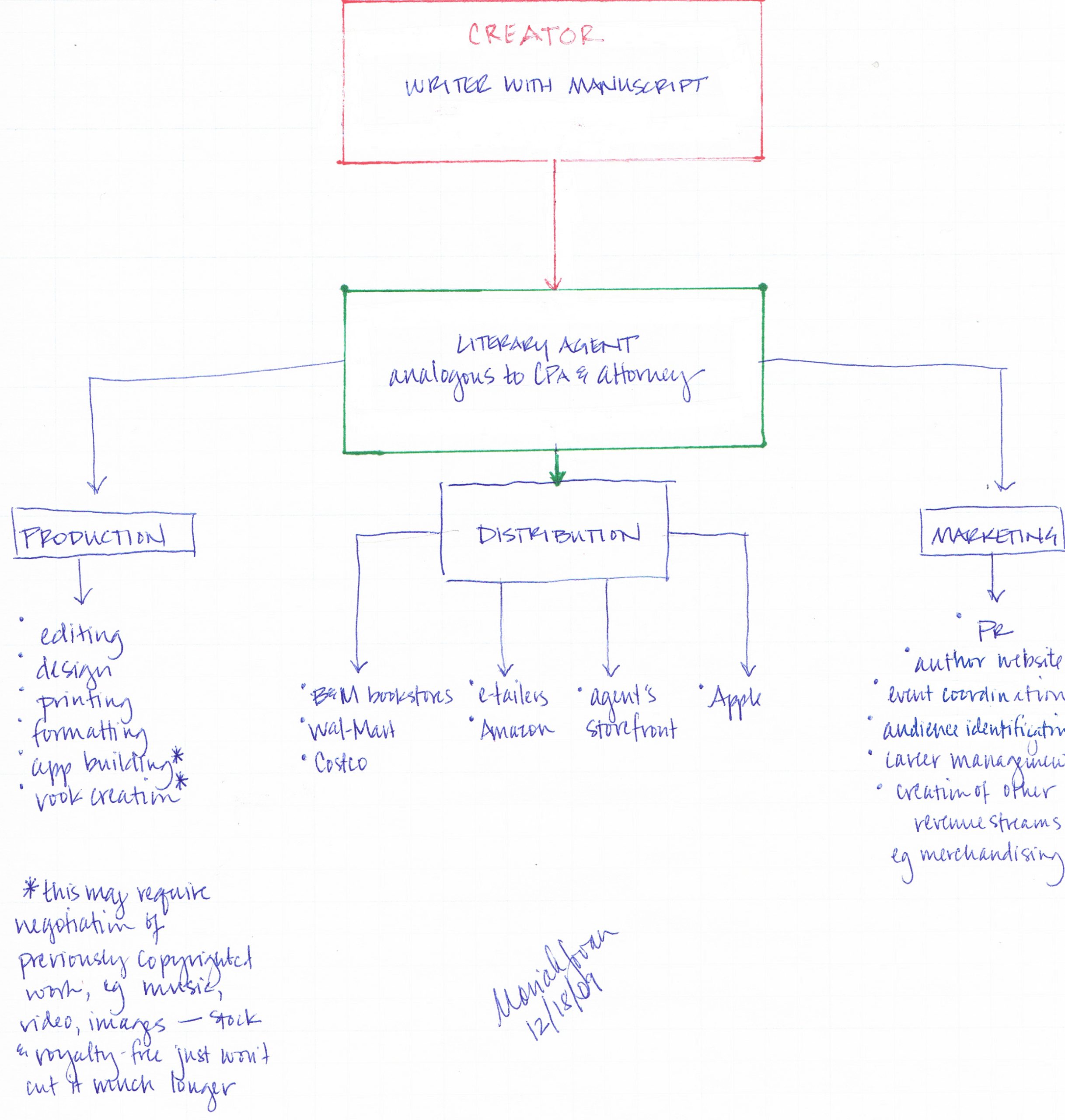
Pop quiz: What word is nowhere to be found in the above flowchart?
I think there’s one agent out there who already knows all this and is slowly, steadily—over weeks, months, years—training his blog readers to start thinking this way.
The difference between how agents work now and how this could work is that a writer would interview agents and hire one (as s/he would an attorney or CPA), as opposed to becoming a supplicant for the agent’s approbation/validation. Agents who now work as if they’re doing writers a favor may not deal with this system well.
On the other hand, even though this is my own plan, I can see that it could land us right back where we are now if writers won’t let go of the thought that they’re powerless and/or only incidental to the book creation process.
Writers, listen up: You’re the creator. There’s power in being the originator of content. Use that power and take control of your own destiny. It’s your work. Take responsibility for its dissemination.
Writers: Accept it and keep going. Or not.
Keep your day job.
Accept that you will not be able to quit your day job.
Regardless how much weeping and wailing and gnashing of the teeth goes on around the web about monetizing art, if you’re a writer not already pulling income that allows writing to be your day job, just deal with the fact that you probably aren’t going to.
In my mind, making peace with the fact that you have to keep your day job is a lot easier than spending all your creative energy to resent it. Ask me how I know.
Today, right now, as I look over the fiction writer landscape on the web, I see lots of writers I can slot into roughly five categories:
- The unpublished authors seeking publication via the normal route (query/reject/revise/repeat). They’re hustling to get an agent’s attention, and possibly spending money on ink/toner, paper, envelopes, and postage to do so. They aren’t earning any money.
- The midlist authors having to prove their numbers in order to get their next book contract, which means they have to hustle and market and fight to make sure people know their books exist (especially if they aren’t in Wal-Mart or Target). They probably aren’t earning enough to write full time.
- The self-published authors having to fight just to let people know they and their work exists. They probably aren’t earning enough to pay the cost of producing their book(s), much less earn a living.
- The career category authors (Harlequin/Silhouette) and e-published romance authors (Samhain, LooseId, Ellora’s Cave), a good portion of whom can earn a fairly decent living cranking out the books, but there’s a catch: Putting out enough books to make that kind of living has to be grueling. At least, it would be for me. YMMV. The advantage to e-publishing over career category publishing, though, is that your titles never go out of print and you have A) time to build a backlist and B) your backlist is forever available to any late-night shoppers with a credit card.
- The A- and B-list authors who have pressures of their own, I’m sure, to which I am not privy. This includes anyone who may (if they choose to) write only one book per year or fewer and earn a comfortable living doing so.
Now, I’m obviously #3, except that I’m doing okay: Not enough to quit doing my day job, but enough to bear out the investment of time and money. (See my Six-Year Plan.) However, my goal is the same as the e-published authors: Build the backlist and invest in the future.
I hate my day job. I really do. Yeah, it’s my own business but I hate the work, mostly because I’ve been doing it or something similar for years. It’s easier now that I have a couple of decent clients, but the work remains. I fight an uphill battle every day to Just Do It, but do it I must. Some days I’m more successful than others.
But the explosion of free versus paid writing that has kind of ballooned lately with Chris Anderson’s book Free, and Malcolm Gladwell’s review of that book in the New Yorker only reinforces the necessity of resigning myself to the fact that I must have a day job.
For now.
The fact of the matter is that I have better odds of doing so than unpublished authors who hold out hope that they’ll hit the lottery.
I also believe that I have better odds than those authors who have to prove every book via sales, even if all the stars are aligned against them (bad cover art, little marketing support, not being in Wal-Mart or Target); perhaps that myopic of me, but I’m hustling for 100% profit, while they’re hustling for 10% royalties and they’re locked into questionable digital contracts (amongst other things).
As for career category writing, I couldn’t do it (as stated above), especially within the restrictions of category. I know, because I tried, and missed the bullseye by half a hair every single time.
I also couldn’t do e-publishing because there isn’t one that would contract what I write, and I know that; I’d rather not waste their time or mine. Also, see above for the grind in order to make money.
Basically, what I have on my side is control and time. I’m going to write no matter what, and I’m going to write what the stories I have to tell. I’d rather put it out there for the opportunity to earn a little money than let it languish in the inboxes of agents who are also feeling the pinch.
Yeah, I think I’m in a really good position. I just can’t quit my day job.
Yet.
I’m slowly coming to terms with that.
Branding redux: I get it now
 Tax Deduction #2, male, 3 years old, doesn’t read, taught me a very valuable lesson yesterday when he saw this:
Tax Deduction #2, male, 3 years old, doesn’t read, taught me a very valuable lesson yesterday when he saw this:
in the bottom right-hand corner of a TV commercial with no other identifying branding and no voice-over identifying the company.
He knew what it was immediately. Pointed at it, blurted it out. Dude didn’t know what it was until the company identified itself.
“Train up a child in the way he should go and when he is old he will not depart from me.”
Mojo Branding Lesson #1.
Sigh.
Toothpaste, packing tape, and e-books
 Today I saw the most brilliant thing I have seen in a week or 2.
Today I saw the most brilliant thing I have seen in a week or 2.
Okay, so you know how you go to the store and while you’re waiting in line to cash out, there’s gobs and gobs of utterly useless crap and empty calories surrounding you? They scream at you: Buy me! Buy me! You need me! You cannot live without me one more second!
I’m mostly inured to that now. I’m too busy trying to figure out how Nostradamus gets so much press and I don’t.
However, today I had reason to go to Office Depot. Now, you must understand. Office Depot is like a crack house for me. I go in, I don’t come out for days, high on the scent of new paper, new pens, new plastic floor pads (the ones that go under your chair). Ah, the smell of bubble wrap in the morning.
But today I only needed to return something and went straight to the counter. On my way out, however, in that space reserved for mindless crap wanting you to buy it, I saw a good ten linear feet (3 feet high) of trial-sized toiletries. You know, like at Wal-Mart. Only better. More thoroughly thought out.
I looked. Looked again (and crap, didn’t take a pic; I’ll go back). Studied what they had. Nothing useless and several brands of each type of toiletry (Crest and Colgate, for example).
You may think this is no big deal, but it IS. This is value-added at the finest. It’s not Sony “fashion earbuds” (although those were way cute); it’s not some weird executive toy I couldn’t figure out how to work; it’s not the ubiquitous calendar. It’s also not the candy/pop/bottled water section.
No, it’s TOILETRIES. People need those. People who shop at office supply stores need those because, you know, I bet lots of business travelers end up at an office supply store. And they might have had to stop at Wal-Mart or Target later to get one of those toiletry items, but they don’t have to now because Office Depot had it. HALLELUJAH! I’ll tell you, the trip from my Office Depot to my Wal-Mart (across a highway from each other) would take half an hour because of traffic, parking, and walking. That’s money saved, people. And just think if a business traveler already knows those things are there! When he’s in a strange city, he knows he can go to the nearest Office Depot and get his packing tape AND his toothpaste.
And BRANDING! I will forever now associate the Office Depot BRAND with stocking things business travelers NEED. It’s not a high-cost item. Doesn’t take up much floor space. Dollar for dollar, I’ll bet that’s got a high ROI.
Okay, so what does this have to do with e-books?
Value added.
Things you can’t get in the print version.
If you were inclined to buy my book, but you knew the e-book version had about 10 extra scenes or character vignettes or lists of resources I used or a list of the songs I listened to while I was writing it (things that are not in the print version), would you be more inclined to check it out?1
I would. Give me a favorite author in e-book (one I’m inclined to buy in hardback anyway), tell me it’s got extra stuff on it, don’t slap any stupid DRM on it, and I’ll buy the e-book for the extra stuff and the hardback for the art.
Value added.
Value added.
Value added.
______________________________
1. It doesn’t yet. Be patient. I’ll retroactively send the extra package to those e-book purchasers.
Caving to instinct and capability
NOTE: This is the sixth in a series of several posts David Nygren of The Urban Elitist and I have been cross-blogging concerning the issue of authors (whether traditionally published, e-published, or self-published) actually getting paid for their work.
And it’s my final entry because after reading David’s interview with Tao Lin, I’m tired. Don’t get me wrong. Doing this series has forced me to take a good look at what I’m doing and why. Because of all the things  converging on the world at the same time, I have been forced to take a candid look at my resources and limitations with regard to A) putting my art out there to begin with and B) getting paid for it. It would seem to me that David’s list of what you have to do to get read, much less paid, can be boiled down to 1 starting point:
converging on the world at the same time, I have been forced to take a candid look at my resources and limitations with regard to A) putting my art out there to begin with and B) getting paid for it. It would seem to me that David’s list of what you have to do to get read, much less paid, can be boiled down to 1 starting point:
Get noticed.
Until you do, you won’t get read. Until you’re read, no one has a reason to pay you for your work, much less your writerly ephemera and dross.
This takes marketing.
This takes time. Lots of it. As Paul said over at Publishing Renaissance,
There is a time limiting factor, people expect you to pay as much attention to their work as they are paying to yours. Many people will only continue to read or comment on your bloggedy blog if you read and comment on theirs. As a result a kind of whirlpool effect is generated, a lot of time and energy expended for very little reward.
Well, I don’t know about looking for reward, but in our heart of hearts, that is the goal, no?
I hang out and comment on a lot of industry blogs: writer, publisher, agent, etc. My name-link in the comments section is an opportunity for someone to click and find me, even though I’m simply participating and not actively selling. But I’m selling. I HATE that.  Every single day, something knocks on the door of my brain and says, “Why are you marketing to writers and industry people? Writers have their own projects and if publishers and agents wanted you, they’d’a said so when you were querying.” Every single day, I have the same epiphany:
Every single day, something knocks on the door of my brain and says, “Why are you marketing to writers and industry people? Writers have their own projects and if publishers and agents wanted you, they’d’a said so when you were querying.” Every single day, I have the same epiphany:
Go where the readers are.
Well, where the hell are they?
The minute I started to answer that question for myself, the economy tanked, and I had the startling epiphany:
They’re in the financial doghouse, like everybody else.
 Well, okay. Maybe I should just be grateful my (non-publishing) business has some income. The fact of the matter is, I invested in a leisure time industry (well, two, but that’s a different story). Right now, folks are trying to put gas in their cars to either get to work or get to job interviews. We’ve been extraordinarily lucky thus far, but those around us haven’t. If I think twice about buying a book or an e-book, it’s very likely others will, too.
Well, okay. Maybe I should just be grateful my (non-publishing) business has some income. The fact of the matter is, I invested in a leisure time industry (well, two, but that’s a different story). Right now, folks are trying to put gas in their cars to either get to work or get to job interviews. We’ve been extraordinarily lucky thus far, but those around us haven’t. If I think twice about buying a book or an e-book, it’s very likely others will, too.
I recently got active (well, semi-active) on Twitter and every time I log on, I wonder why I waited so long. I love Twitter. I love it far more than blogs and fora. It’s the methadone for my chronic IRC and Usenet withdrawal (even though I do have a really really good newsgroups provider and I hang onto mIRC like a fiend). When I tweeted my frustration with Amazon and that I feel my presence on Amazon is solely as marketing and visibility, and NOT as a revenue stream, I got this:

Along with the book marketing advice I’ve sometimes seen given: “The best marketing is to write another book, build your backlist,” this had me thinking for days.
- About my limitations as a writer/publisher/marketer.
- About my limitations as a writer.
- About my limitations as a mother and wife.
- About my limitations as a business owner (other than publishing).
- About my obligations and priorities, to whom I owed what first.
- About that little economic concept called opportunity loss.
The sad fact of my life is that I’m not a sales person and I don’t think creatively about ways to market. Tao Lin’s creativity in this knows no bounds, yet it stymies me, even when it’s laid out in detail. Every single new idea that comes to my attention seems like a chore of enormous proportions, adds to my to-do list, and takes the joy out of writing and, moreover, out of meeting people because I start to think of them as sales targets and my web stats start to become the measure of my worth.
Do I want to monetize my art? Yes, I do. I surely do want to make money doing what I love, but I have had to come to terms with the fact that I probably won’t, or at least, not anytime soon. I not only don’t enjoy marketing, I find it drains my energy for anything else in my life I could or should or want to be doing because I’m always chasing that next sale. It decreases my enjoyment in online and real-life interactions.
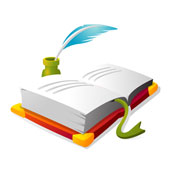 As an independent, I can be in this game for as long as I want; I have no restrictions other than whatever my resources allow. I can afford the time to wait out the economy, to build the backlist, to interact with a community of people who like my books.
As an independent, I can be in this game for as long as I want; I have no restrictions other than whatever my resources allow. I can afford the time to wait out the economy, to build the backlist, to interact with a community of people who like my books.
But in the end, it only boiled down to one thing: I had to come to terms with the fact that I wasn’t going to be able to close my main business and write full-time. Not now. Maybe not ever. I had to decide that if the best I can do is make the books pay for themselves and give that many people a good read, then I have to be at peace with that.
Monetizing art? It’s a gamble at best, especially with the roadblocks in the way: market saturation, financial doom’n’gloom, loss of leisure time and money, changing technologies. But it’s not like most of us are going to stop doing the art. I’m not. David’s not. Tao Lin’s not. Zoe, Kel, Robin, J.M. Reep, and Ara aren’t. Scalzi and Wheaton and Gennita Low aren’t.
My instincts say to me, “Mojo,” they say, “a lot of people have paid money for your book and they like it and they want more. Ultimately, your loyalty should be to them, and what you owe them is another book and, if you’re feeling generous, a whole multi-media playground in this world you’ve built.”
Eventually, the economy will cycle around again (economies are cyclical, though it seems everyone forgets that), people will have money, and they will spend on leisure activities. In that time, I will have built my backlist and my world so that those people who find me and want to immerse themselves in what I’ve created will be able to pay for it.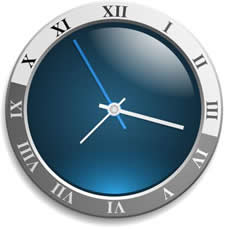
So what have I come to? It’s simple really:
Work at the money-making business I’ve got.
Write.
Be patient.
Patient? you hoot. Yeah, in this society, whatever.
No, really.
If the only real resource you have is time, use it.
The Urban Elitist interviews Tao Lin…
NOTE: This is the fifth in a series of several posts David Nygren of The Urban Elitist and I will be cross-blogging concerning the issue of authors (whether traditionally published, e-published, or self-published) actually getting paid for their work.
… a rather benignly frenetic author whose ability to think out of the box in terms of monetizing his art is, well, astounding. David had to promise Sontag in return for an interview; the barter system at work and tax-free, to boot!
I’ve had time to stew on this a bit and I have some closing thoughts (at least, for me), which I’ll blog in the coming days.
Sharing knowledge
NOTE: This is the first in a series of several posts David Nygren of The Urban Elitist and I will be cross-blogging concerning the issue of authors (whether traditionally published, e-published, or self-published) actually getting paid for their work.
I’ve been thinking about this for a while; how, if the product you offer is free, can you make a living at it? Answer’s simple: You can’t. So why do we writers do this? Just be read? Really? I thought I might need therapy, which is when I began writing this post.
In David’s excellent post, How to Get Your E-book Read, my overriding thought was that getting read is not the problem. In the era of “information wants to be free,” getting paid will be the problem. His article was serendipitous because then I knew I wasn’t alone in my thinking and we began to talk. Since he and I started brainstorming last week about what facets of the money issue we could cover (and believe me, we’ve uncovered more facets than a 2-carat marquis diamond), I’ve seen three disparate conversations/articles concerning this.
First, this Dear Author thread (almost 550! comments) wherein an author stated that she pulled a series because her work was pirated so heavily she couldn’t make money on it and, further, that if a day came that she couldn’t make money writing, she’d just stop.
Second, Ara13 in this Publishing Renaissance thread says:
I read last week how one of this blog’s bloggers complimented a writer by saying she passed on her book to a friend. I winced. For me, that was a back-handed compliment. Sure, it’s great that you like my work and want others to be exposed to it, but if you really want to help, you’ll buy them a copy. Sorry, but being able to pay my rent and grocery bills allows me to pursue such a creative endeavor.
Third, this Time article, most of which is quotable, but this is the phrase that stuck out to me:
From a modern capitalist marketplace, we’ve moved to a postmodern, postcapitalist bazaar where money is increasingly optional.
Postcapitalist.
Money optional.
I nearly had a heart attack.
When I was 18 and new to college, I had a teacher who told me, “Don’t give away your knowledge. You earned it, you paid for it in time, money, blood, sweat, and tears. Don’t give it away for free.”
I choked. It went against everything I’d been taught both at home and at church (Mormons have no paid clergy; it’s strictly volunteer), and I was horrified. Then that teacher went on to prove himself an asshole, so I felt vindicated.
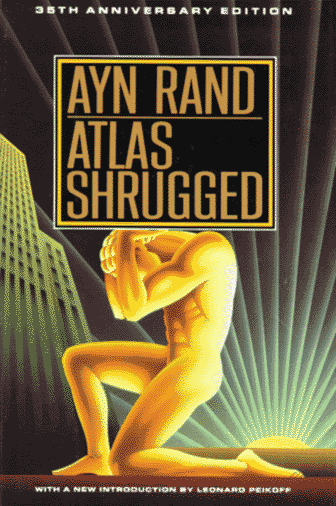 But as I got on in life and saw that those who have knowledge and who teach for little or no money aren’t very … respected. And I read books of philosophy that changed my thinking. Yeah, one of them was Atlas Shrugged. Sue me.
But as I got on in life and saw that those who have knowledge and who teach for little or no money aren’t very … respected. And I read books of philosophy that changed my thinking. Yeah, one of them was Atlas Shrugged. Sue me.
Then I got along farther in life and saw that sharing a little quality knowledge is useful as well as generous. It’s empowering to giver and taker. It at once gives the receiver a fish so that he doesn’t keel over from hunger and teaches him how to use a fishing pole. It’s a personal choice in how to balance what to give, how much, and when. However.
There is a price:
- Expectation and entitlement. As in, some people will then feel entitled to more of the giver’s knowledge, and possibly get upset when more is not forthcoming.
- Devaluation. As in, whether it’s taken or not, it will be seen as disposable because it’s cheap or free. “This is advice is free, so it’s worth what you paid for it” takes on a whole new meaning in today’s postcapitalist, money-optional bazaar.
I have fear for the future of information.
What I truly fear is that all content, all information, all written entertainment, will be free and thus, devalued. The consultant (knowledge) and artist and musician and author need to be rewarded monetarily for their work or else they can’t eat.
Most consultants will find a way to monetize their knowledge. Chris Brogan does. Ramit Sethi does. Christine Comaford-Lynch does. Suze Orman does. No matter how much they give away.
Artists find ways to monetize their knowledge, from the elite to the bourgeois to the commercial to the assembly line.
Musicians tour and sell merchandise. (I probably should’ve used Radiohead for that example, but oh well.)
But most writers have no real avenue of residual earnings off their writing, except through direct sale of the work itself. Most writers will do whatever it is they do anyway without pay and continue to sling hash and throw themselves on the altar of “honing their craft” in order to earn the approbation of agents and editors (if they continue to exist in any number). They’ll take increasingly lower wages in order to be afforded the privilege of writing for money (i.e., “be a REAL writer”) for the cachet of having gotten The Call.
And then they’ll be pirated one way (cutting a print book open and scanning it) or another (file sharing).
Because the consumer has been trained via a number of methods to feel entitled to intellectual property and will, in turn, slap down any writer egotistical enough to say, “Hey, the work product of my brain is worth money.” They’ll do this through two methods:
Refuse to pay and not consume, then find free (possibly inferior, probably equivalent, possibly superior) content elsewhere.
Refuse to pay and consume anyway. Piracy.
No, his mind is not for rent to any god or government.
Nor, I would add, a self-entitled public. It should be for sale.
Aside: I needed the expertise of an editor to thoroughly go over my book. I paid her. I will not disclose how much because I don’t want to think about it; however, she had expertise I did not and I felt … weird … about asking someone to do that much work for little to no money.
What’s the answer?
Hell, I don’t know.
Rand had her architect and her musician and her novelist ride off into the sunset poverty-stricken for the sake of their art, taking their work with them.
The Internet drowns in pundits and theorists claiming, “Information wants to be freeeeeeeeeeeeeee!”
The writer in me, the one who was reared to give away knowledge, still hears the siren call of That One Person to whom what I have to say will make a difference in his life and possibly change it for the better—whether I know it or not.
The entrepreneur in me wants to make a living doing what I love to do. Validation is gravy, but I gotta have the spuds.
The Proviso book “trailer”
Make it easy on the customer
There’s a book I really really really want to read. However, it’s only available in e-format 2 ways: Serialized on the author’s blog (i.e., on the computer—no thanks) and via Kindle (no thanks). Now, I’m getting ready to email him and ask him if it’s available any other way, so we shall see.
There’s another book I really really really want to read [dead link]. However, it’s only available in 4 formats (actually, 3 because 2 formats are identical in nature), none of which I can read on my ebook reader. The format I want is MS Reader (LIT). Why? Because I can break the DRM and put it on my ebook reader. Which, come to think of it, is probably why it’s not offered in that format.
Really, there’s enough good stuff out there in more accessible formats to waste time having to read on the computer. After having had my eBookWise for a mere 7 months, I’ve gotten to where I will forgo a title (no matter how badly I want to read it) if I can’t get it in a format that is accessible to me. Otherwise, I’ll just go to the library, where it likely won’t be.
We’re really trying to put The Proviso in as many places as possible in as many formats as we can. It’s not just in the B10 Mediaworx bookstore (8 DRM-LESS formats bundled together in a zip), but at Amazon in both trade paperback and Kindle, at Barnes & Noble, at Books-A-Million, at Powell’s, and now at ebooksjustpublished [out of print] (which takes you back to the B10 Mediaworx bookstore, but hey, it’s exposure).
Some time next week, The Proviso will be in the iTunes store as an iApp for iTouch/iPhone. Although we’ve formatted it into EPUB for those who’ve downloaded Stanza on their iTouch/iPhones, we really want to present as many options as possible to make it easy for every customer to read it the way they prefer to read it.
Because not being able to read a book I want to read the way I want to read it is beginning to weary me.
What have you done for me lately?
PUBLISHERS
I’d like to see new and different in romance. It took Ellora’s Cave and Loose Id and Samhain to break you out into genres you wouldn’t touch before (and no, they’re not all erotica).
I’d like to see you lead the way into e-publishing but again, you didn’t get in gear until the above-mentioned trailblazers kicked your butts. Apparently not even Baen was able to get to you like those three did.
INDEPENDENT BOOKSELLERS
The consignment system of inventory management is, I believe, in its late afternoon and Barnes & Noble CEO Riggio wants to push it into that good night. Agent Richard Curtis (and foresightful creator of e-Reads) points out that it’s not going away–on the dead-tree book brick’n’mortar playground, but, he says,
Caution: warning label ahead
TO: LDS Fiction Publishers
FROM: MoJo
RE: Warning labels
Lest you think I was kidding about that warning label thingie I mentioned only about 16 times across various blogs over the weekend’s little dustup, I bring you a way to justify such a practice to yourself: Sales.

